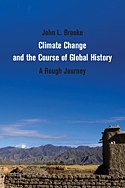[youtube=https://www.youtube.com/watch?v=RmjNqsnH6WQ&w=480]
Two new papers published this week suggest that the West Antarctic glaciers draining into the Amundsen Sea — the Pine Island, Thwaites, Haynes, Pope, Smith and Kohler glaciers — are melting rapidly and are now committed to collapse, adding up to 1.2 metres to future sea level rise. In the NASA JPL video above, Eric Rignot, lead author of a paper ((E. Rignot, J. Mouginot, M. Morlighem, H. Seroussi, B. Scheuchl. Widespread, rapid grounding line retreat of Pine Island, Thwaites, Smith and Kohler glaciers, West Antarctica from 1992 to 2011. Geophysical Research Letters, 2014; DOI: 10.1002/2014GL060140)) examining how the glaciers’ “grounding lines” — the point where the bottom of the glacial ice leaves the bedrock and starts to float — have retreated very significantly over the last 20 years explains how they are now melting back unstoppably. Another paper modelling ice loss from the Thwaites glacier ((Ian Joughin, Benjamin E. Smith, Brooke Medley. Marine Ice Sheet Collapse Potentially Underway for the Thwaites Glacier Basin, West Antarctica, Science, DOI: 10.1126/science.1249055.)) finds that it is committed to retreat and collapse via the same mechanism. Lead author Ian Joughin of the University of Washington, told Science magazine:
The next stable state for the West Antarctic Ice Sheet might be no ice sheet at all…
Continue reading “PIG and pals pass point of no return – West Antarctic ice melt inevitable”
Like this:
Like Loading...


 In which I pull together the strands of the recent bad news from Antarctica and Greenland, and lament the loss of the coastline we all grew up with — no longer a theoretical possibility but a long term certainty. Check out
In which I pull together the strands of the recent bad news from Antarctica and Greenland, and lament the loss of the coastline we all grew up with — no longer a theoretical possibility but a long term certainty. Check out